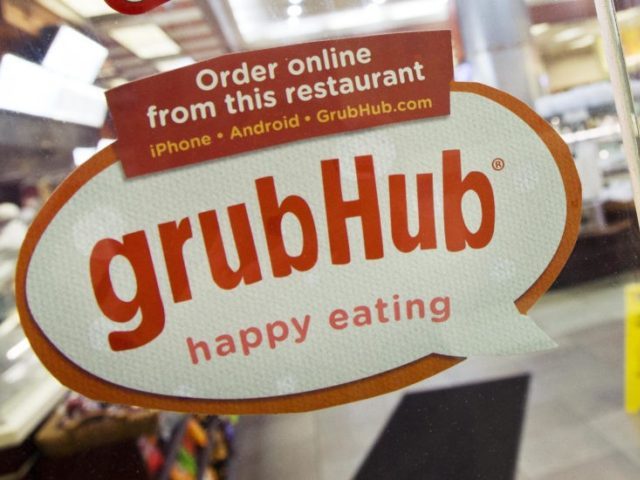Three major players are breaking away from the competition in the food delivery service market. Uber Eats, GrubHub, and DoorDash are dominating the emerging industry in a similar fashion to Facebook, Google, and Twitter have dominated social media.
For the uninitiated, food delivery services like Uber Eats, DoorDash, and GrubHub allow users to order food from their favorite local restaurants using their smartphone. After users order food on the smartphone application, a driver picks it up and delivers it to the user. Now, according to a report from Restaurant Business Online, three major players in the space are breaking away from their competitors.
GrubHub, Uber Eats, and DoorDash are outperforming the competition, with start-ups like Postmates and Caviar trailing behind. As customers have become accustomed to finding their favorite local eateries on these three platforms, it has become increasingly difficult for competitors to gain traction.
“The real estate on the customers’ phones is limited,” one analyst said. “Will the land-grab only benefit the largest existing players, and then strategically disadvantage smaller brands who are now forced into a relationship with an order-and-delivery company just to be in front of customers?”
Some are concerned that the dominance of these businesses might allow them to abuse restaurants and customers by charger higher rates. As of now, GrubHub advertises that it will take a commission as high as 20 percent. But if customers are exclusively using the GrubHub platform to find their next meal, might they be compelled to increase their commission rate?
Barron’s published a report yesterday on the ground that DoorDash has gained serious ground on Uber Eats and GrubHub, which was largely considered to be the primary leader in the space.
“For the industry, DoorDash’s pace of share gain is the dominant trend,” the analyst wrote. “For [GrubHub], new diner growth remains strong. However, diner retention, initial diner spend, and peak diner spend all appear to be deteriorating, which suggests lifetime value in newer cohorts is declining.”
Stay tuned to Breitbart News for more updates on this story.
